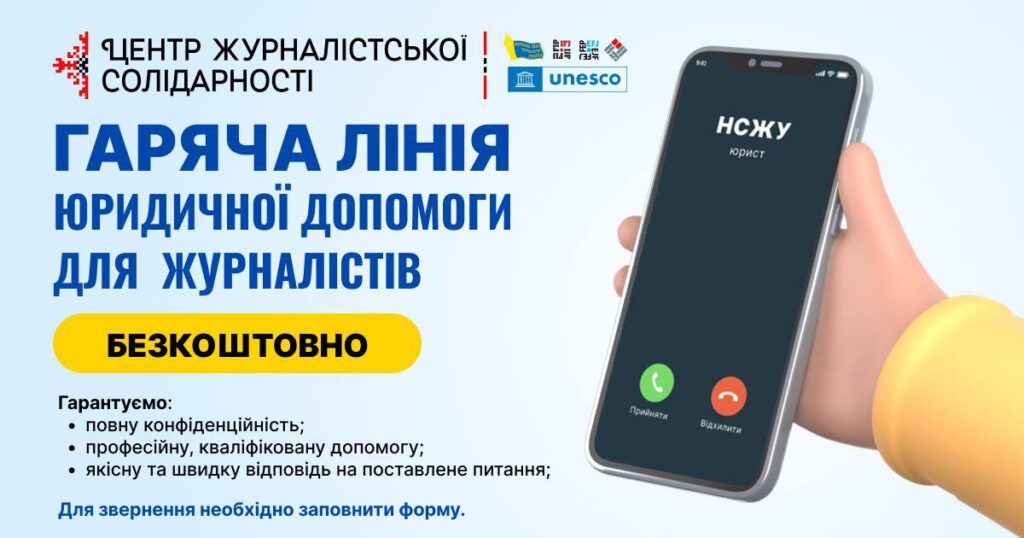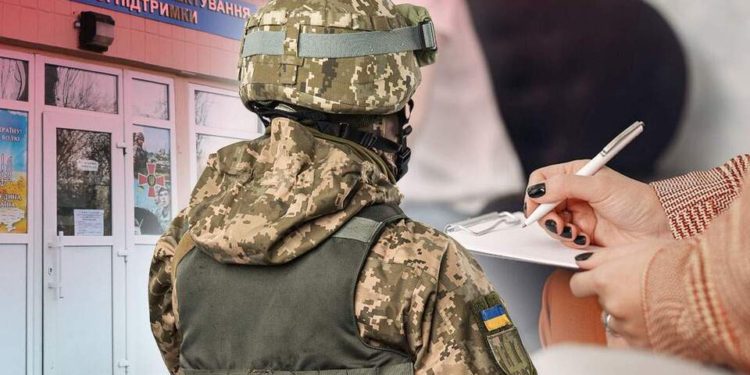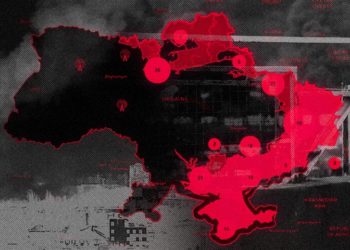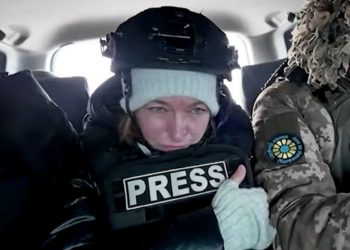The full-scale war is underway, caused by the unprecedented aggression of the russian federation against our country, so mobilization measures are taking place throughout the territory of Ukraine, in particular, the conscription of citizens liable for military service. At the beginning of the war, the issue of the conscription procedure was not fully defined and legally regulated; now the situation has changed, as the Cabinet of Ministers of Ukraine adopted Resolution 560 On Approval of the Procedure for Conscripting Citizens for Military Service During Mobilization, for a Special Period dated May 16, 2024, which, among other things, determines the procedure for serving summonses, refusal to receive a summons, details (content) of the summons, etc.
The National Union of Journalists of Ukraine (NUJU) once again insists that journalists bring significant benefits to society by covering local events the latest news, including war crimes of the russian federation, and performing other professional functions.
Since neither the executive authorities and local governments nor the legislator have yet developed a mechanism for booking or obtaining a deferment by journalists subject to military service, in this material, we briefly explain what powers representatives of the Territorial Center of Recruitment and Social Support, and the police have, who is authorized to serve summonses, what are the mandatory details of the summons, the procedure for their service, etc. We hope that as many journalists subject to military service as possible will read this article because knowledge and understanding of their rights and obligations can prevent violations by the relevant authorities and the commission of violations against a person.
Who has the right to serve summonses?
Resolution 560 clearly defines the circle of persons authorized to serve summonses, namely:
- Representatives of the Territorial Center of Recruitment and Social Support – within the administrative territory covered by the authority of the relevant Territorial Center of Recruitment and Social Support;
- Representatives of structural units of state administrations – within the administrative territory covered by the authority of the relevant state administration;
- Representatives of executive bodies of village, settlement, city, and district councils in cities – within the administrative boundaries of settlements and territories covered by the authority of the relevant executive bodies;
- Representatives of enterprises, institutions, organizations – on the territory of enterprises (institutions, organizations) and in places where employees perform work (duties);
- Representatives of the relevant unit of intelligence agencies, the Central Directorate, or regional bodies of the SSU (only for reservists and conscripts who are on military registration with the specified bodies) – throughout the territory of Ukraine.
IMPORTANT! Not all representatives of the specified groups (except for representatives of enterprises) have the right to serve summons, but only those who were authorized to serve a summons on the basis of the Order of the relevant head of the Territorial Center of Recruitment and Social Support, state administration, etc. On the basis of the Order, which determines the person authorized to serve summons, an official ID card of the person authorized to serve summons is issued (the form of the ID card is given below).
The issued official ID card must be personally signed by the head, and the signature must be sealed with a government seal.
What is the procedure for drawing up a summons and its details (content)?
The Law On Mobilization Training and Mobilization, as well as Resolution 560 itself, determines the mandatory details of a completed summons, which are generally identical but with a small but significant difference in one of the points.
According to Resolution 560, the summons shall indicate:
- surname, first name, patronymic (if any), and date of birth of the citizen to whom the summons is addressed;
- name of the district (city) Territorial Center of Recruitment and Social Support or its departments or the relevant subdivision of the intelligence agencies, the Central Directorate or the regional body of the Security Service of Ukraine (SSU) that issued the summons;
- purpose of the summons to the district (city) Territorial Center of Recruitment and Social Support or its departments or the relevant subdivisions of the intelligence agencies, the Central Directorate, or the regional bodies of the SSU;
- place, day, and time of appearance upon summons;
- signature (qualified electronic signature) of the official who issued (formed) the summons, date of signature (the law does not require indicating the date of signature);
- registration number of the summons;
- explanation of the consequences of failure to appear and the obligation to notify the reasons for failure to appear.
How are summons served?
Summonses for notification are issued to a representative of the Territorial Center of Recruitment and Social Support authorized to serve them under the signature in the journal of registration of summonses. After the completion of notification activities, such a representative reports on the number of summonses issued and served.
The senior of the notification group, the authorized representative of the Territorial Center of Recruitment and Social Support, stops (approaches the o) the citizen and introduces himself, informing about the purpose of the stop (arrival) and communication.
At the request of the citizen, he presents his citizen’s passport (officer’s ID, military ID, service ID) and service ID of the person authorized to serve the summons. Also, he invites the citizen to present his passport and military registration document (military registration document in electronic form).
PLEASE NOTE! It is the citizen who was stopped who must demand that the representative of the Territorial Center of Recruitment and Social Support present his documents, in particular, the service ID of the person authorized to serve the summons.
Without presenting such a demand, in case of refusal to receive the summons, it will be extremely difficult to prove that the representative of the Territorial Center of Recruitment and Social Support or another person serving the summons did not have the appropriate authority.
At the same time, during the service of the summons, photo, and video recording is carried out using technical devices and means of photo and video recording by a representative of the Territorial Center of Recruitment and Social Support or a police officer.
Who and in what cases can carry out detention?
Administrative detention can be carried out exclusively by police representatives (with the assistance of representatives of the Territorial Center of Recruitment and Social Support allowed) in the event that the head of the Territorial Center of Recruitment and Social Support has applied to the police authorities to detain a person in connection with their commission of an administrative offense regarding refusal to receive a summons or compliance with the rules of military registration, as well as in cases where during the service of the summons as part of the notification group, which includes a police representative, the citizen refused to receive the summons, as noted above.
Administrative detention is carried out regardless of the place of residence of the person on military registration. In this case, the person is delivered to the nearest Territorial Center of Recruitment and Social Support and SSU bodies or relevant units of intelligence agencies.
At the same time, if the representatives of the Territorial Center of Recruitment and Social Support have submitted a notification to the police authorities about the need to detain a person, the police representatives must enter the registers and databases (banks) included in the unified information system of the Ministry of Internal Affairs information about persons who have committed the above-mentioned administrative offenses,
Information about persons who have committed administrative offenses in the field of military registration must also be entered into the Unified State Register of Conscripts, Military Enlisted Persons, Reservists, and which must also be displayed in electronic form (Reserv + application).
***
We remind you that the NUJU free legal assistance hotline is available for journalists. Ukrainian media men and women can receive consultations from highly qualified specialists of the law company IBC LEGAL SERVICES – lawyers and lawyers with extensive experience.

We guarantee:
- complete confidentiality;
- professional, qualified assistance;
- a high-quality and quick answer to the question posed.
To apply, you must fill out a special form: http://surl.li/evrmg. The service is completely free and available from any region or country.
The legal hotline operates under the auspices of the NUJU network of Journalist Solidarity Centers with the support of UNESCO and the International and European Federations of Journalists.
Danil Serbin, IBC Legal Services

 THE NATIONAL UNION OF
JOURNALISTS OF UKRAINE
THE NATIONAL UNION OF
JOURNALISTS OF UKRAINE
















Discussion about this post